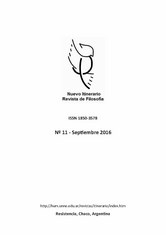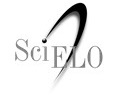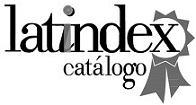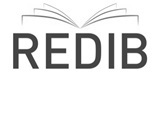On Hegel’s Idea of Good in the Science of Logic: Methodology, Metaphysics, and Epistemology in Dialogue with Kantian Ethics and the Phenomenology of Spirit
DOI:
https://doi.org/10.30972/nvt.1927000Keywords:
Hegel, good, idea, logic, phenomenologyAbstract
This paper presents a study of "The Idea of the Good" in Hegel's Science of Logic. The first part of this text begins by examining the goals pursued by the section "The Idea", in order to provide an explanation of how "The Idea of the Good" fits into it and what contributions it makes to the fulfillment of these goals. In this sense, I will argue that the idea of the good contributes to the development of the correspondence between the subjective and objective poles of the idea, although with certain deficiencies that will require its integration with the theoretical idea. Furthermore, I will argue that Hegel is discussing Kantian ethics, albeit from a metaphysical and epistemological perspective. In line with this, the following sections of this text will provide a brief presentation of Kantian ethics (mainly focusing on those aspects that seem relevant from the perspective of Hegel's reading, namely, the transcendental dialectic of the Critique of Practical Reason), and then I will proceed to study passages from the Phenomenology of Spirit – namely, "The Moral View of the World" and "Dissemblance or Duplicity" (“Die Verstellung”)–, where Hegel discusses these topics. This will show certain coherence between the treatment of Kantian ethics as it appears in the Phenomenology and the treatment of the idea of the good in the Logic, proving that the target of this last text is precisely Kantian ethics but now focusing on a metaphysical and epistemological matter.
References
Bowman, B. (2013). Hegel and The Metaphysics of Absolute Negativity. Cambridge: Cambridge University Press.
Engfer, H.-J. (1982). Philosophie als Analysis. Studien zur Entwicklung philosophischer Analysiskonzeptionen unter dem Einfluß mathematischer Methodenmodelle im 17. und frühen 18. Jahrhundert. Stuttgart-Bad Cannstatt: Frommann-Holzboog.
Hegel, G. W. F. (2015). Ciencia de la lógica. La doctrina del concepto. (F. Duque, Ed.). Madrid: ABADA Editores.
Hegel, G. W. F. (1968ff). Gesammelte Werke. Hamburg: Meiner Verlag.
Hegel, G. W. F. (2010). Fenomenología del espíritu (A. Gómez Ramos, trad.). Madrid: ABADA Editores/UAM.
Hindrichs, G. (2012). Two models of metaphysical inferentialism: Spinoza and Hegel. En E. Förster, Y. Melamed (Eds.), Spinoza and German Idealism (pp. 214-231). Cambridge: Cambridge University Press.
Kant, I. (1972). Fundamentación de la metafísica de las costumbres. México DF: Porrúa.
Kant, I. (2013). Crítica de la razón práctica. Buenos Aires: Colihue.
Marrades Millet, J. (1985). Descartes, Newton y Hegel sobre el método de análisis y síntesis. Pensamiento, 41, 393-429.
Ormeño Karzulovic, J. (2010). Dualismo y praxis o ¿Cuál es el problema con la moral kantiana, profesor Hegel? En V. Lemm, J. Ormeño Karzulovic, Hegel, pensador de la actualidad, ensayos sobre la Fenomenología del espíritu y otros textos (pp. XX-XX). Santiago: Ediciones Universidad Diego Portales.
Pozzo, R. (1993). Analysis, Synthesis and Dialectic: Hegel’s answer to Aristotle, Newton and Kant. En M. J. Petry (Ed.), Hegel and Newtonianism (pp. 27-39). Kluwer Academic Publishers.
Rinaldi, G. (2012). The “Idea of Knowing” in Hegel’s Logic. Absoluter Idealismus und zeitgenössische Philosophie. Absolute Idealism and Contemporary Philosophy. Bedeutung und Aktualität von Hegels Denken. Meaning and Up-to-dateness of Hegel’s Thought. Frankfurt am Main: Peter Lang.
Siep, L. (2015). El camino de la Fenomenología del espíritu. Un comentario introductorio al Escrito sobre la Diferencia y la Fenomenología del Espíritu de Hegel. Barcelona: Anthropos.
Wehrle, W. (1993). The Conflict between Newton’s Analysis of Configurations and Hegel’s Conceptual Analysis. En M. J. Petry (Ed.), Hegel and Newtonianism (pp. 17-26). Kluwer Academic Publishers.
Westphal, K. R. (1991). Hegel's Critique of Kant's Moral World View. Philosophical Topics, 19(2), 133-176.
Downloads
Published
How to Cite
Issue
Section
License

This work is licensed under a Creative Commons Attribution-NonCommercial 4.0 International License.
Les autores ceden a Nuevo Itinerario los derechos de publicidad de sus trabajos, toda vez que hayan sido admitidos como parte de alguno de sus números. Ello no obstante, les autores retienen los derechos de propiedad intelectual y responsabilidad ética así como la posibilidad de dar difusión propia por los medios que consideren.












51.jpg)

